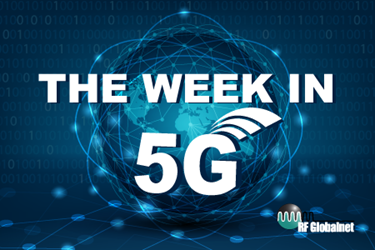The Week in 5G: 7/21/2020 — 5G Future Forum Wrapping Up First Technical Specs; U.S. Mid-Band Auction Kicks Off
By Ed Biller

The 5G Future Forum — a group of global 5G leaders established in January América Móvil, KT Corp., Rogers, Telstra, Verizon, and Vodafone “to develop 5G interoperability specifications to accelerate the delivery of 5G and MEC solutions” — plans to release its first technical specifications to members in August.
The technical specifications comprise cover two areas: multi-access edge computing (MEC) “Experience Management” and “Deployment.” The experience management specs define “a set of intent-based APIs for functional exposure of edge and workload discovery with potential expansion to include future MEC functions and capabilities…driven by network intelligence.” The deployment specs are intended to “enable hyperscalers and service providers to deploy and integrate global MEC physical frameworks, including facilities (e.g. power and cooling), monitoring, operational considerations, and security.”
In the U.K., the nations’ on-again-off-again Huawei equipment ban (currently “on”) has had several repercussions. One such blowback is telco Vodafone’s call for the British government to scrap its next spectrum auction, which had been scheduled for spring but has been bumped to 2021 due to the coronavirus pandemic. Vodafone wants the government to cancel an auction in which mobile operators bid for "space" on the 5G spectrum. Per a BBC News report, Vodafone says “radio frequencies for 5G mobile services should instead be evenly distributed for a set price.”
Vodafone’s rationale is that the decision to lock Huawei out of the nation’s 5G rollout drives up costs for telcos. "There is little point in operators owning spectrum if we don't have the money to use it,” Vodafone chief executive Nick Jeffery told BBC News.
The British government has reacted to its decision’s fallout, in part, by asking Japan to help build its 5G wireless networks, reports Reuters, citing Nikkei as a source. The government also has seemingly left itself an escape route, according to a report by the Observer.
“Huawei was told that geopolitics had played a part [in the ban], and was given the impression that it was possible the decision could be revisited in future, perhaps if Trump failed to win a second term and the anti-China stance in Washington eased,” states the report.
In the U.S., bidding is set to begin this week in the Federal Communications Commission's (FCC) 3.5 GHz auction. S&P Global reports that more than 22,000 licenses in the 3550-3650 MHz portion of the 3.5 GHz band will be up for grabs and, “as of July 1, the FCC has identified 271 applicants that are qualified to bid in the auction.”
In technology news, Nokia announced this week its first commercial 5G standalone (SA) private wireless networking solutions for enterprise customers.
“With Nokia’s new 5G SA solutions,” states a Nokia press release, “enterprise customers have the choice of deploying Nokia Digital Automation Cloud – a compact, plug-and-play system with automation enablers – or, they can further customize their network according to needs with Nokia Modular Private Wireless.”
Meanwhile, IBM and Verizon have announced a partnership to develop new 5G and AI solutions for industrial customers. The partnership focuses on edge computing, combining “IBM's AI, hybrid cloud, edge computing, asset management, and connectivity solutions with Verizon's 5G and edge compute technologies,” according to a report by The Motley Fool.
